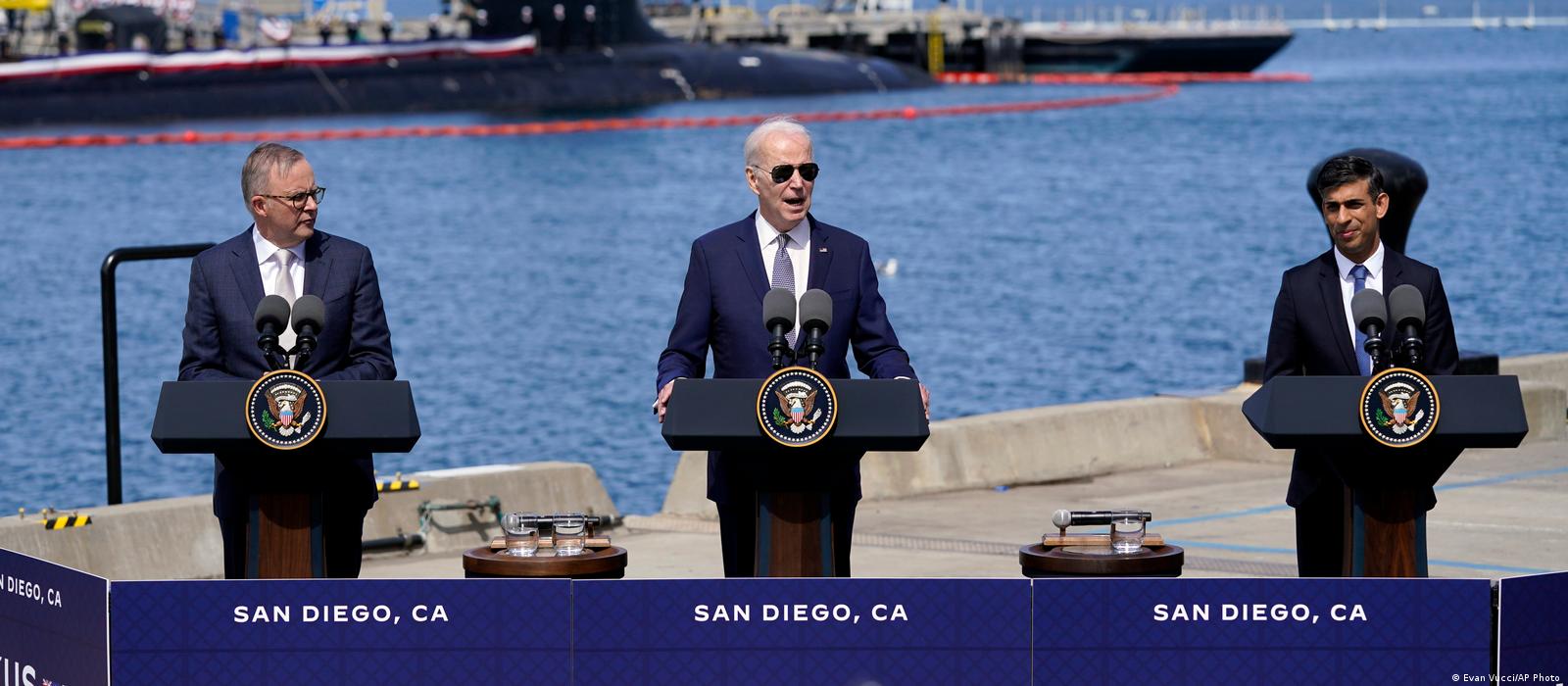The billion-dollar deal provides for the purchase of U.S. nuclear submarines by Australia in an attempt to diminish Chinese influence in the Indo-Pacific. Beijing and Moscow say there is a risk to non-proliferation of atomic weapons.
The United States, the United Kingdom, and Australia on Monday (March 13) revealed new details of the Aukus security pact, an attempt to counter China’s growing influence in the Indo-Pacific region, causing immediate reaction from Beijing.
The White House communicated that under Aukus, the United States will sell three nuclear submarines to Australia in the early 2030s, and that two more could be sold if necessary.
While Aukus is widely seen as a counterweight to China’s influence, White House National Security Adviser Jake Sullivan said that the deal does not turn against any country and that the goal is to show U.S. commitment to the Indo-Pacific.
This is the second time the US has shared its nuclear submarine propulsion technology – the other partner is the UK. The new submarines will allow Australia to join, starting in the next decade, the restricted club of nations with nuclear-powered submersibles, which includes only the United States, Russia, China, the United Kingdom, France (the five permanent members of the Security Council), and India.
Brazil also has a nuclear submarine project, developed by the Navy with French technology. The program has been hampered by budget cuts and corruption scandals and is expected to deliver a nuclear fighter submarine (which does not carry missiles) in 2029, by the current schedule.
Nuclear-powered submarines are difficult to detect and can remain submerged for long periods, travel over great distances, and, depending on the category, carry cruise or ballistic missiles.
Harsh criticism from China
China reacted immediately to the announcement and said that the sale of the submarines violates the goals of the Nuclear Proliferation Treaty (NPT) and constitutes “a serious risk of nuclear proliferation.”
China’s Foreign Ministry accused the three Western countries of stimulating an arms race with the pact, which it called “a typical case of Cold War mentality.”
Russia said the pact raises nuclear weapons non-proliferation issues. Russian Foreign Minister Sergei Lavrov equated Aukus with the expansion of NATO and said that the West is fostering, with the pact, “years of confrontation” in the Asian Pacific region.
“The Anglo-Saxon world, with the creation of structures like the Aukus and with the advance of NATO military structures in Asia, is making a serious bet on many years of confrontation,” he said.
US President Joe Biden, meanwhile, stated that the submarines are “nuclear-powered and not armed with nuclear weapons.” He stressed that the vessels “will have no nuclear weapons of any kind.”
“Hole” in the NPT
The British newspaper The Guardian noted that
, according to details of the pact announced Monday in San Diego, California, this is the first time a “hole” in the NPT has been used to transfer fissile material (material capable of sustaining a nuclear fission chain reaction) and nuclear technology from a nuclear power (in this case, the U.S.) to a non-nuclear-weapon country (Australia).
That “loophole,” according to the daily, is paragraph 14, which allows fissile material for non-explosive military use, such as naval propulsion, to be excluded from inspections and monitoring by the International Atomic Energy Agency (IAEA).
The IAEA has been the scene of discussions between China and the three Aukus countries, with the Asian power accusing the Western partnership of involving the illegal transfer of nuclear weapons material, “making it, in essence, an act of nuclear proliferation.”
Australia has argued that it does not have the facilities necessary to turn the submarines’ fuel into a nuclear bomb and has pledged never to have them.
Experts view with concern the use of paragraph 14 in the Aukus case, for fear that it sets a precedent to be invoked by other countries to, in effect, transfer highly enriched uranium or plutonium without international oversight.
Three-Phase Project
In San Diego, Australia’s Prime Minister Anthony Albanese hailed the deal as the largest investment in the country’s history. He said the project, with an estimated cost by Canberra of $245 billion over the next three decades, will create some 20,000 direct jobs. The Premier compared the impact on the economy to that generated by the introduction of the automobile industry after World War II.
